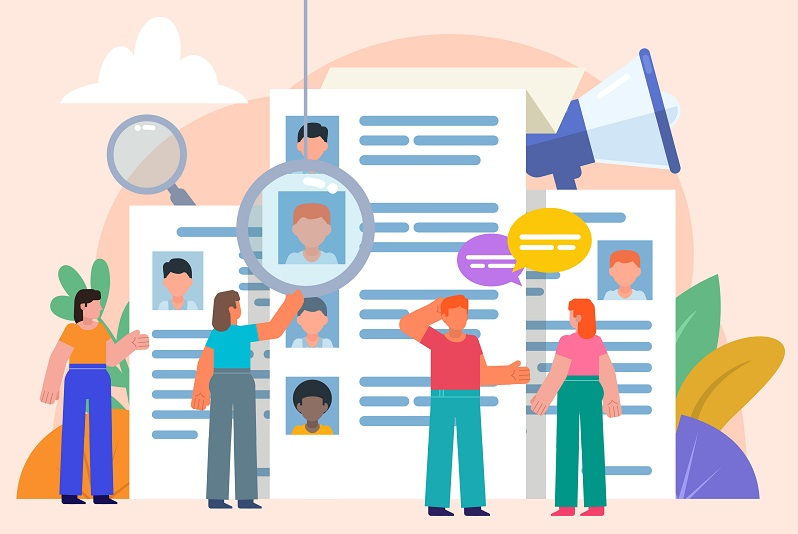ATD Blog
Never Use the MBTI Assessment for Hiring or Selection
Mon Apr 04 2022

Millions of people around the world have completed the Myers-Briggs Type Indicator (MBTI) assessment. It has helped them communicate more effectively, resolve conflicts, and improve their relationships both in and out of the workplace. So why not use it for hiring? Well, for the same reason that you wouldn’t use a screwdriver to bang in a nail or a hammer to put in a screw: The tool wasn’t designed for that purpose. In fact, the very qualities that make the MBTI such a great tool for personal development make it poorly suited to staffing selections. Let’s look at these in more detail.
A Process, Not Just a Questionnaire
The MBTI isn’t simply an assessment; it’s an integrated process. Used correctly, individuals take the test but also explore what their personality preferences might be, either with a qualified practitioner or via an interactive online system. The combination of the two allows them to make an informed choice about their personality type—something usually referred to as their best-fit or verified type. They aren’t just given a report and shown the door; they can take ownership of their personality preferences and understand how they can use this knowledge. This is a powerful paradigm for individual or team development, but it’s not appropriate for hiring processes, where job candidates may be hesitant to present their true selves.
Not Designed With Selection in Mind
Unlike the MBTI, some personality questionnaires are designed for hiring. Such assessments typically contain social desirability measures—also known as lie scales. If users answer yes to most questions such as “I am never late” or “I am always polite,” they’re probably painting too positive a picture of themselves. Because the MBTI assessment is meant to be used in development and only used in tandem with the best-fit process, a lie scale would be superfluous.
People Can Act Against Type—Though This May Sap Their Energy
In MBTI assessments, we sometimes ask a client to sign their name and then ask them to do it again using their other hand. When asked to describe each experience, the action with the preferred hand elicits adjectives such as “easy,” “quick,” “automatic;” with the other hand, clients use descriptors like “difficult,” “slow,” “had to think about it,” “took more energy.” They probably could write with their non-preferred hand, and if they practiced, they might get quite good at doing this.
By the same token, MBTI theory suggests that people have a preferred type, but that if needed, they can act against type, taking on tasks that would not typically appeal to people with their personality preferences. They may find this de-energizing, but other aspects of their job or life may compensate. So, personality type does not directly predict ability to do a particular job, another reason why it should not be used for hiring.
No Personality Type Is Better Than Any Other
Written by Isabel Myers, Gifts Differing is one of the most popular books about personality type. We all have different gifts. Each type has likely strengths and possible downsides, and applying the findings from MBTI helps us to make the most of our gifts and avoid the pitfalls. Open dialogue and trust are important to get the most out of the MBTI. If the assessment was widely used in selection, this tacit contract would be broken, rendering the intended use of the MBTI for development less effective or even problematic.
It’s in the Not-So-Small Print
The MBTI assessment provides insights about people, but using it for the hiring process is inappropriate. In fact, the publisher of the assessment, the Myers-Briggs Company, stipulates that the assessment should not be used for hiring or selection, conditions that users of the questionnaire agree to. When the Myers-Briggs Company is alerted that the instrument is being used inappropriately, they investigate and may revoke the right to purchase and use MBTI products. So yes, as an L&D facilitator, you’re excited about tools that help your employees understand themselves better, but ensure you’re using those tools in an appropriate manner.
